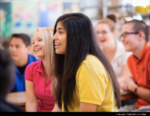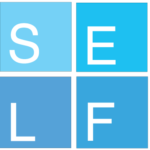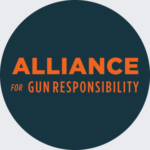Social-Emotional Learning (SEL)
The Yale Center for Emotional Intelligence uses the power of emotions to create a more healthy, effective and compassionate society.
Engage students with Xavier Riddle and the Secret Museum, a PBS KIDS series based on the Ordinary People Change the World books by Brad Meltzer and Christopher Eliopoulos. The show follows the adventures of Xavier Riddle, his sister Yadina, and their friend Brad as they travel back in time to meet real life historical figures when they were kids.
Use these video clips, teaching tips, and historical figure biosketches to support students’ social-emotional, literacy, and social studies skills.
This article provides a more in depth look at SEL and talks about the benefits of SEL.
The Understanding LGBTQ+ Identity: A Toolkit for Educators Collection offers a series of digital media resources to help administrators, guidance counselors, and educators understand and effectively address the complex and difficult issues faced by LGBTQ students. The collection features short segments of video content from WNET’s groundbreaking LGBTQ series First Person, a digital series that delivers candid personal narratives illustrating larger conversations about gender, sexuality, social norms, and identity development. The video content is scaffolded by a suite of materials (informational text, conversation guides, discussion questions, and teaching tips) to facilitate their use in professional development settings. When used in tandem, the videos and accompanying educational resources will help promote understanding, awareness, and self-esteem.
This Trauma-Informed SEL Toolkit has been created by Transforming Education and is a 120-minute professional development session designed for educators seeking research-based strategies to create a healthy classroom environment for students who have experienced adversities and trauma.
The following resources offer tips for families including age-appropriate responses to common questions, a guide to self-care, and activities for young children experiencing social distancing.
This article, published by Edutopia, gives tips and resources to obtain funding for a social emotional learning (SEL) program.
Think Equal is a nonprofit that offers social and emotional learning programming for children ages 3 to 6.
In this “Think Before You Speak” lesson, you’ll focus on modeling what we should think only in our head and what we should actually say out loud.
SELF aims to improve quality of life and increase academic achievement for students by introducing social and emotional learning in classrooms.
Schoolwide SEL helps students excel academically, build stronger relationships, and lead happier, healthier, more fulfilling lives. Schoolwide SEL engages the entire school community in creating caring, motivating, and equitable learning environments that promote social, emotional, and academic growth.
The Alliance for Gun Responsibility works to end the gun violence crisis in our community and to promote a culture of gun ownership that balances rights with responsibilities. Through collaboration with experts, civic leaders, and citizens, we work to find evidence-based solutions to the crisis of gun violence in our community. We create innovative policy, advocate for changes in laws, and promote community education to reduce gun violence.
The Alliance for Gun Responsibility Foundation regularly gathers national and local subject matter experts together to share information and discuss the intersectionality of gun violence with a number of research and advocacy issues, including suicide prevention, domestic violence, hate crimes, trauma-informed care, stigma and discrimination. Each summit focuses on evidence-based best practices, next steps and coordination of prevention efforts.
We are proud to partner with hundreds of organizations across Washington who support commonsense gun violence prevention efforts in our state. The depth and breadth of our coalition membership shows the strong desire for change from voices in all corners of the state.
We also have a robust volunteer program with local leaders across the state. The chapter team model empowers volunteers to drive change in their communities by engaging in a wide range of grassroots activities, including organizing a phone bank, hosting a house party, visiting with a legislator and attending rallies and other events.










